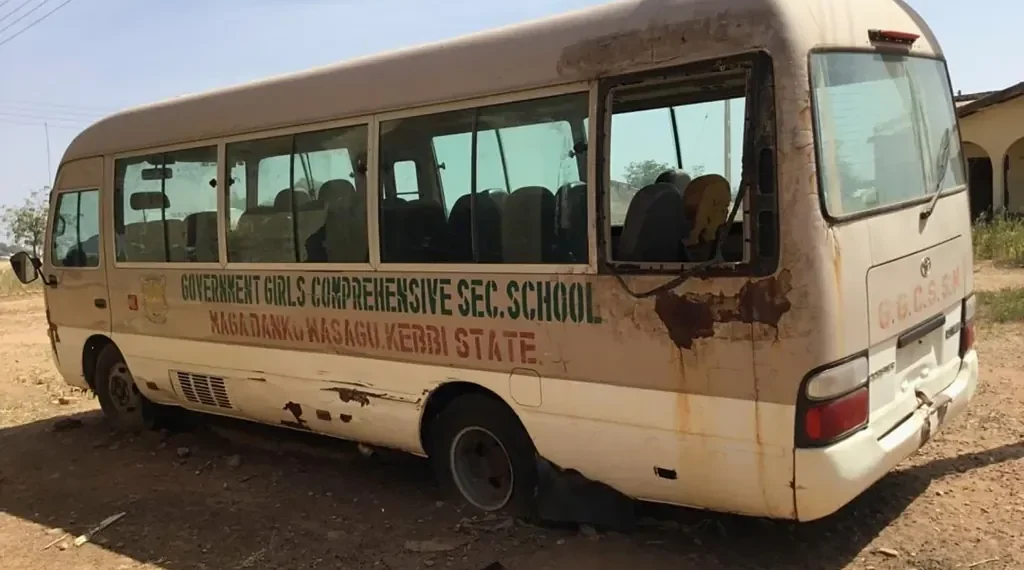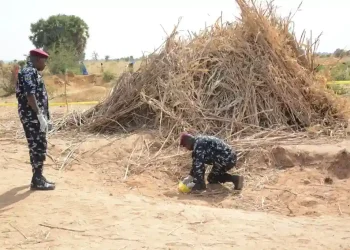Nigeria Confronts Rising School Kidnappings Amid Armed Group Violence
School abductions in Nigeria have once again captured global attention after a Catholic school in Niger State’s Papiri community was attacked on Friday, marking the second major school abduction in the country this week. Authorities confirmed a rescue operation was underway, while local media reported that 52 children were seized.
These incidents follow a previous abduction in neighboring Kebbi State, where 25 students were taken. Analysts and security experts say that targeting schools has become a strategic choice for armed groups aiming to draw attention and exert pressure, particularly in northern Nigeria, where limited security presence leaves institutions vulnerable.
Northern Nigeria’s Persistent Security Threats
Boko Haram and Islamic State Affiliates
Boko Haram, a militant group notorious for rejecting Western-style education, has long threatened Nigeria’s northeast and neighboring countries, including Cameroon, Niger, and Chad. The group’s 2014 abduction of 276 Chibok schoolgirls drew international condemnation, while a 2018 raid in Yobe State saw 110 students kidnapped.
Recently, Boko Haram has experienced internal splits, with many fighters now affiliated with local Islamic State factions. Although the precise number of militants is uncertain, estimates place them in the low thousands. Both groups continue to recruit vulnerable youth, often forcibly, exploiting the lack of safety and educational opportunities in northern communities.
Abductions for Ransom
In addition to Islamist insurgents, northern Nigeria is plagued by armed bandits, primarily former herders and criminals targeting schools and villages for ransom. Unlike Boko Haram, these groups are primarily financially motivated, although some connections with extremist factions exist, particularly in the northwest.
These attacks often occur at night, with assailants traveling on motorcycles, disguising themselves in uniforms, and disappearing into remote regions. Past incidents include the abduction of over 300 boys in Katsina State (2020), more than 300 schoolgirls in Zamfara State (2021), and 287 students in Kaduna State (2024), many of whom were released following ransom payments.
Government Response and Security Measures
Nigeria has faced longstanding challenges in countering armed groups, with military operations sometimes mistakenly targeting civilians. Despite airstrikes and special operations against hideouts, militants and bandits continue to mount attacks, raid villages, and mine roads.
In response to rising insecurity, President Bola Tinubu replaced the nation’s security chiefs last month and has sought international support. Earlier this year, the U.S. approved $346 million in arms sales to bolster Nigeria’s fight against insurgencies. However, former U.S. President Donald Trump has criticized Nigeria’s government for failing to protect Christian communities, threatening military action and aid suspension — claims that Abuja has firmly rejected.
Impact on Education and Communities
The repeated kidnappings have profound implications for education, community morale, and social stability. According to UNICEF, only 37% of schools in 10 conflict-hit Nigerian states have early warning systems for potential threats.
Analysts note that attacks on schools disrupt learning, traumatize children, and highlight broader governance and security deficiencies. The targeting of schools underscores the challenges Nigeria faces in securing its youth while balancing complex religious, ethnic, and criminal dynamics in the region.
International Awareness and Humanitarian Concerns
Global attention remains focused on northern Nigeria, where both religious and criminal violence intersect. While Boko Haram primarily targets educational institutions for ideological reasons, bandits pursue ransom-driven motives, compounding insecurity. International agencies, including UNICEF and the Africa Center for Strategic Studies, continue to monitor the situation and advocate for improved protection measures for children and communities.
As Nigeria navigates these threats, local authorities, humanitarian organizations, and international partners must coordinate strategies to safeguard students, strengthen community resilience, and address underlying causes of violence.
This article was rewritten by JournosNews.com based on verified reporting from trusted sources. The content has been independently reviewed, fact-checked, and edited for accuracy, neutrality, tone, and global readability in accordance with Google News and AdSense standards.
All opinions, quotes, or statements from contributors, experts, or sourced organizations do not necessarily reflect the views of JournosNews.com. JournosNews.com maintains full editorial independence from any external funders, sponsors, or organizations.
Stay informed with JournosNews.com — your trusted source for verified global reporting and in-depth analysis. Follow us on Google News, BlueSky, and X for real-time updates.














